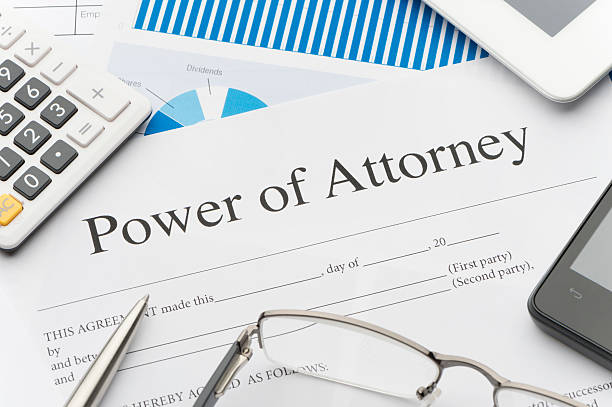People often ask our Wills and estate lawyers the following question – can a power of attorney change a Will in Australia? The answer is no, a power of attorney cannot change a Will. To understand why the answer to “can a power of attorney change a Will in Australia” is no, you must first read about what a power of attorney is.
In this article, we are going to further explore the question of ‘can a power of attorney change a Will in Australia?’ and also look into the functions and purposes of a power of attorney.
Can a Power of Attorney Change a Will in Australia: Meaning of Power of Attorney
A power of attorney is a legal document that authorises a trustee, a person or an organisation to act on behalf of a party to manage their assets, and make legal and financial decisions for them. It can either appoint one person or more than one person for these purposes. It is necessary for someone to look after your financial affairs in such circumstances.
These legal documents are particularly useful if loss of mental capacity impairs you to make these decisions for yourself. For example, such situations may arise if the party suffers from some illness, injury or disability.
The power of attorney can do the following:
- operating bank accounts
- signing legally binding documents
- paying bills
- managing investments
- collecting rent
- buying and selling real estate (in this case they must be registered with the NSW Land Registry Services)
Given the broad range of functions that a power of attorney carries, can a power of attorney change a Will in Australia? As we have already discussed, they cannot do so. This is because a Will is separate to a power of attorney.
A Will is a legally binding document that outlines the wishes of a testator, stating how they would like their assets such as bank account, or real estate and other estate to be distributed following their death.

Types of Power of Attorney NSW
In NSW there are two main types of Power of Attorney that individuals can use to delegate authority to another person for various purposes. These are:
- General Power of Attorney: This grants broad powers to the attorney to manage financial and legal affairs on behalf of the principal. It is often for temporary or specific purposes, like handling financial transactions while the principal is abroad.
- Enduring Power of Attorney: This type of power of attorney continues even if the principal becomes mentally incapacitated. It can cover both financial and personal matters. However, it must specifically mention that it is “enduring” to remain effective in such situations.
How to Make a Power of Attorney in NSW?
Creating a Power of Attorney (POA) in NSW involves several steps, and it’s highly advisable to consult with a qualified legal professional to ensure that the document is correctly drafted and complies with NSW laws and regulations. Here’s a general outline of the process:
- Choose the Type of POA: Determine the type of power of attorney document that suits your needs. It could be a General Power of Attorney or Enduring Power of Attorney
- Select an Attorney: Choose the person or persons you want to designate as your attorney(s). Ensure the appointed person are willing and capable of carrying out the responsibilities you intend to assign to them. This could be close friend, a family member, NSW Trustee & Guardian or a public trustee organisation or a solicitor.
- Consult a Solicitor: It’s highly recommended to consult with a solicitor or lawyer experienced in NSW’s POA laws. They can provide legal advice, help you understand the requirements, and ensure the document is correctly drafted.
- Draft the POA Document: Work with your attorney or solicitor to draft the POA document. The document should clearly state your intent, the powers granted to the attorney, any limitations, and whether it’s enduring or not.
Additional Steps
- Include Witness Signatures: In NSW, a POA must be signed and witnessed correctly. Usually, it requires the signature of the principal (you), the attorney(s), and one or more witnesses. The witnesses must be over 18 years old and not be beneficiaries or attorneys themselves.
- Certification: Depending on the type of POA, you may need a certification of legal capacity from a medical practitioner or other qualified professionals, especially for enduring powers of attorney.
- Registration: Certain types of POAs, like enduring powers of attorney, may need to be registered with the NSW Land and Property Information (LPI) office. Your solicitor can guide you through this process.
- Keep Copies: Keep copies of the signed and witnessed POA document in a safe place, and provide copies to your attorney(s) as needed.
- Review Periodically: It’s a good practice to review your POA periodically and make updates if necessary, especially if there have been changes in your circumstances or the people you’ve designated as attorneys.
Remember that creating a POA is a legal matter, and errors or omissions in the document can have significant consequences. Consulting a solicitor for these purposes is important.

Contact Wills and Estate Planning Solicitors
Experienced Wills & estate planning solicitors can help you with drafting legally valid Wills as well as appointing a general power of attorney, enduring power of attorney etc. Our team of lawyers at JB Solicitors provide various services in relation to Wills and estate planning.
If you lose capacity to make your own decisions including decisions on medical treatment, it is necessary to appoint someone who will have your best interests in mind. We offer fixed-fee pricing for some of our Wills and estate planning services, including helping you create a power of attorney. You can view our fixed-fee prices here.
If you have more questions like ‘can a power of attorney change a Will in Australia?’, do not hesitate to reach out to our competent and friendly team of solicitors today. We can represent you in the district, local or supreme court when required. We also have other legal teams such as immigration team and criminal team if you are charged with criminal offence.
Contact us in case of any enquiries.
